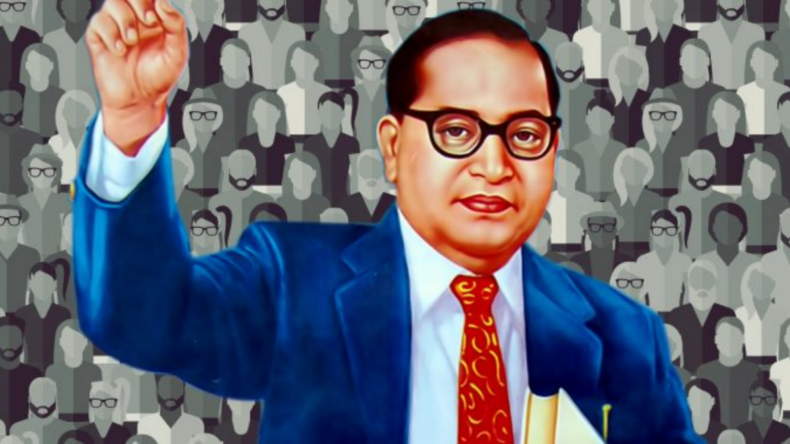Dr Babasaheb Ambedkar – the name alone suggests a dignified and erudite man. Dr Bhimrao Ramji Ambedkar, well known as the ARCHITECT OF THE INDIAN CONSTITUTION.
Bhimrao Ramji Ambedkar (April 14, 1891, Mhow, India—December 6, 1956, New Delhi), Dalit (Scheduled Castes; historically known as untouchables) politician and law minister of the Indian government (1947–51).
As a child, he was bullied by his high-caste classmates since he was born into a Dalit Mahar family in western India. His father served in the Indian army as an officer. He received a scholarship from the Gaekwar (ruler) of Baroda (now Vadodara) to study in universities in the United States, the United Kingdom, and Germany. He joined the Baroda Public Service at the suggestion of the Gaekwar, but after being mistreated by his high-caste colleagues, he left.
Opposition to untouchability
He quickly rose to prominence among Dalits, establishing multiple newspapers on their behalf and winning special representation for them in the government’s legislative bodies. He authored What Congress and Gandhi Have Done to the Untouchables in response to Mahatma Gandhi’s claim to advocate for Dalits (or Harijans, as Gandhi termed them) (1945).
Babasaheb Ambedkar was appointed as India’s law minister in 1947. He played a key role in the creation of the Indian constitution, which prohibited discrimination against untouchables, and expertly guided it through the parliament. In 1951, he resigned, dissatisfied with his lack of power in government. In October 1956, he quit Hinduism and became a Buddhist, owing to his dissatisfaction with the persistence of untouchability in Hindu philosophy.
Dalits (low-caste Hindus referred to as “untouchables” at the time) were given rights. The deal, which was signed at Poona (now Pune, Maharashtra), was the consequence of the British government’s Communal Award of August 4, 1932, which proposed that seats in India’s several legislatures be allocated to various communities to calm communal tensions.
The plan was backed by Dalit leaders, particularly Bhimrao Ramji Ambedkar, who believed it would help Dalits promote their interests. On the other side, Mahatma Gandhi objected to the creation of a separate electorate for Dalits from the Hindu electorate, believing that it would weaken India’s independence bid. Gandhi proclaimed a death fast while in prison, which he started on September 18.
Until Gandhi was close to death, Ambedkar would not give up his stance on separate electorates. He and the Hindu leaders then agreed to the pact, which rejected separate eel (September 24, 1932), the agreement between Hindu leaders in India awarding additional citrates but enhanced representation for Dalits within the Hindu electorate for a 10-year term.
Although Ambedkar claimed that he was being blackmailed, the pact marked the beginning of the Indian nationalist movement’s fight against “untouchability.”
Babasaheb Ambedkar Politics Career
Ambedkar was named principal of the Government Law College in 1935, and he served in that role for two years. He settled in Mumbai and oversaw the construction of a big residence, as well as stocking his library with over 50,000 books. He established the Independent Labour Party in 1936, which won 15 seats in the Central Legislative Assembly elections in 1937.
In the same year, he released The Annihilation of Caste, based on his New York thesis. Ambedkar’s work drew widespread acclaim for its harsh criticism of Hindu religious leaders and the caste system as a whole. He objected to Congress’s plan to refer to the untouchables as Harijans (Children of God), a term coined by Gandhi.

As Minister for Labour, Dr Babasaheb Ambedkar served on the Viceroy’s Executive Council and the Defence Advisory Committee. The Finance Commission of India was founded by Ambedkar in 1951.
Babasaheb was an outspoken opponent of income taxes for the poor. He helped to stabilize the economy with initiatives such as the Land Revenue Tax and excise duty. He was a key figure in land reform and the development of the state’s economy.
According to him, the caste system impedes labor movement (higher castes would not work in lower-caste occupations) and capital movement because it divides laborers and hierarchical character (assuming investors would invest first in their caste occupation).
Dr Babasaheb Ambedkar valued education, particularly where it was sensibly refused. Indeed, he is rumored to have declared that for the oppressed, education was more essential than Temple admission. BR Ambedkar saw education as a powerful tool that could both empower every citizen and assist overcome the constraints of discriminatory social practices.
As a college named after him, we aspire to imitate his vision and assist future generations in building a holistic, inclusive, and progressive society in Modern India.
Published By: Bhavya Dedhia












